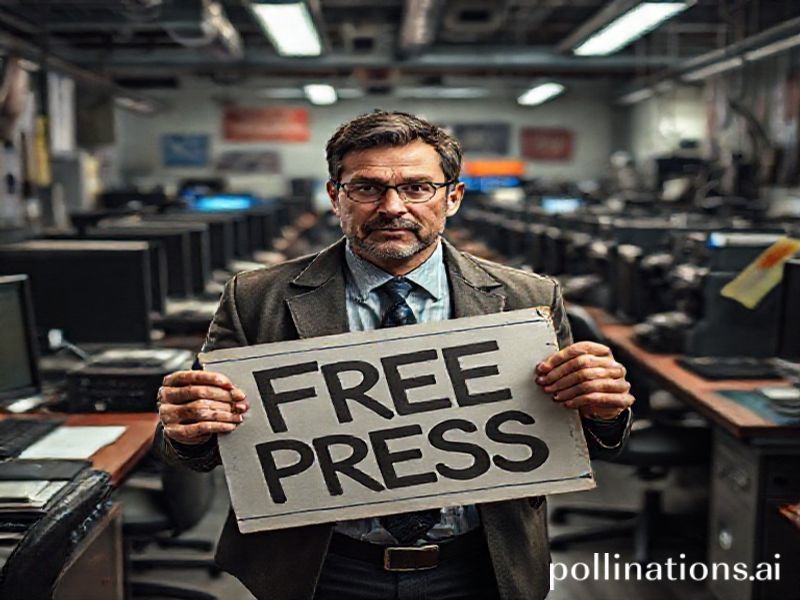Free Press: The Internet’s Oxygen Mask in a World Choking on Misinformation
# **Free Press: The Internet’s Oxygen Mask in a World Choking on Misinformation**
In a world where Twitter threads are the new town criers and Instagram stories are the modern-day town squares, the concept of a “free press” has become as trendy as it is essential. But why is this topic suddenly blowing up like a viral TikTok dance? Let’s dive in, shall we?
### **The Cultural Context: From Newspapers to Newsfeeds**
Once upon a time, the free press was a noble institution, a beacon of truth in a world of propaganda and spin. Think of it like the wise old sage in a fantasy epic—always there to provide the hero (aka the public) with the wisdom they need to slay the dragon (aka corruption, injustice, and bad policies). But in the digital age, the press has evolved. It’s no longer just about newspapers and evening news broadcasts; it’s about blogs, podcasts, YouTube channels, and even memes.
The internet has democratized information, which is both a blessing and a curse. On one hand, anyone with a Wi-Fi connection can share their perspective. On the other hand, not all perspectives are created equal, and the line between fact and fiction has become blurrier than a low-res meme.
### **The Social Impact: Truth vs. Clickbait**
The free press is trending globally because it’s under attack. From political leaders calling mainstream media “fake news” to algorithms prioritizing clickbait over credibility, the very foundation of informed democracy is shaking. And let’s be real—when even your grandma is sharing questionable Facebook posts about “secret government conspiracies,” you know we’ve got a problem.
But here’s the thing: the free press isn’t just about holding the powerful accountable. It’s about giving people the tools they need to make informed decisions. Whether it’s voting, investing, or even choosing the best avocado toast spot in town, access to reliable information matters.
### **Why It’s Significant: The Internet’s Oxygen Mask**
Think of the free press as the internet’s oxygen mask. Without it, we’re all gasping for air in a sea of misinformation. When journalists are censored, threatened, or outright silenced, the public suffers. And in an era where a single tweet can spark a global movement (or a stock market crash), the stakes have never been higher.
But here’s the silver lining: the internet is also a powerful tool for activism. From citizen journalism to crowdfunded investigative reports, the public is stepping up to fill the gaps left by traditional media. And let’s not forget the role of satire and humor in keeping the conversation alive. After all, nothing gets a point across like a well-timed meme or a viral Twitter roast.
### **Conclusion: The Fight for Truth in the Digital Age**
The free press is trending globally because it’s under siege, but also because it’s more important than ever. In a world where information is power, the fight for a free and fair press is the fight for democracy itself. So, the next time you see a trending hashtag about press freedom, remember: it’s not just about journalists—it’s about all of us.
Now, if you’ll excuse me, I’ve got some fact-checking to do. And maybe a meme or two to share.
—







